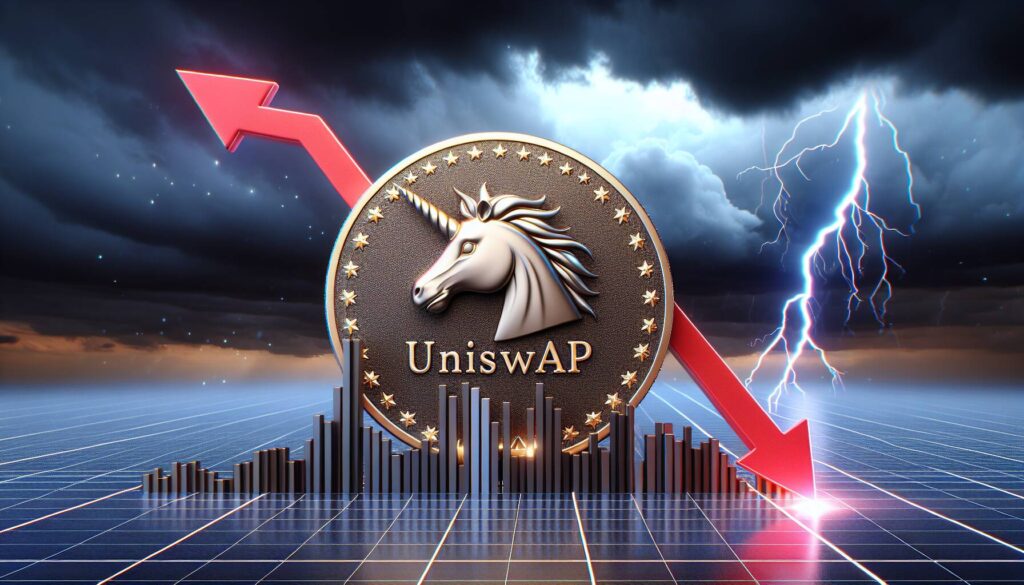The Scroll decentralized autonomous organization (DAO) is experiencing significant turmoil as it has decided to “pause” its governance process following recent leadership resignations and confusion surrounding ongoing proposals. This decision came to light during a delegate call held on Wednesday, where key members discussed the challenges facing the organization. A DAO like Scroll operates on blockchain principles, allowing members with tokens to participate in decision-making by voting on important matters such as financial allocations and project initiatives.
In an announcement on social media, delegate Olimpio revealed that co-founder Haichen Shen indicated the team is currently “redesigning governance.” This strategic pause has been characterized as a temporary measure rather than a full halt, according to Scroll contributor Raza. Delegates, who are trusted representatives responsible for casting votes on behalf of other members, have expressed concerns about the status of live proposals, including essential treasury management strategies.
“We need time to put everything in order,” the Scroll team stated, acknowledging the uncertainty in both governance structure and next steps.
The resignation of a prominent leadership figure, Eugene, has left the Scroll team grappling with which proposals remain active or approved. Despite the uncertainty, key delegates maintain their positions, with Olimpio ranking fourth in voting power at 176,000 SCR tokens. While governance proposals still technically exist, the likelihood of their execution remains in question as the organization navigates this turbulent period. Notably, Scroll’s SCR tokens have seen a 3% increase in the past 24 hours, though they have dipped 75% since their peak last December, reflecting broader market trends.

The Scroll DAO Governance Pause
The recent developments within The Scroll decentralized autonomous organization (DAO) highlight important shifts in governance and potential implications for its members.
- Governance Process Paused: The Scroll DAO will temporarily halt its governance actions following leadership resignations, indicating instability within the organization.
- Decentralized Nature: DAOs operate on blockchain principles, allowing members to vote on key decisions. This emphasizes the community-driven aspects but also shows vulnerabilities when leadership is unclear.
- Leadership Resignations: Key figures, including Eugene, have resigned, causing uncertainty about the status of ongoing proposals and the overall direction of the DAO.
- Redesigning Governance: Co-founder Haichen Shen announced efforts to restructure governance, which may lead to more centralized control, impacting members’ voting rights and influence.
- Delegates’ Role: Trusted delegates can vote on behalf of others, offering a mechanism to manage decision-making in chaotic times, but reliance on delegates might affect individual members’ engagement.
- Active Proposals Uncertain: It remains unclear if current proposals, including important treasury management measures, will proceed, creating potential financial risks for members.
- Token Performance: Scroll’s SCR tokens have seen a short-term increase but are down significantly from their peak, which might impact member confidence and investment decisions.
The situation within The Scroll DAO is a stark reminder of the complexities of decentralized governance structures and the importance of stable leadership for community confidence and effective decision-making.
Scroll DAO Governance Pause: A New Chapter or a Roadblock?
The recent decision by the Scroll decentralized autonomous organization (DAO) to pause its governance process highlights significant challenges in the realm of decentralized governance. This move comes amidst leadership resignations and uncertainty over ongoing proposals, which are crucial elements for any DAO aiming for effective community participation. Unlike other DAOs, such as Maker or Aave, which have maintained a clearer governance structure and transparency during transitions, Scroll’s governance turmoil emerges as a potential disadvantage in the fiercely competitive landscape of blockchain organizations.
Competitive Advantages: Despite the current chaos, Scroll has a few points in its favor. The pause in governance allows the team to potentially redesign and strengthen its decision-making frameworks, reflecting a proactive approach to governance reform. This may resonate positively with existing community members who have seen other DAOs struggle with abrupt policy changes without proper preparations. By taking time to “put everything in order,” Scroll can pivot towards a more robust model that can inspire trust among participants.
Competitive Disadvantages: On the other hand, the hesitation to execute live proposals, including critical treasury management measures, poses a clear risk to the DAO’s stability and member trust. The unknown status of proposals, combined with leadership confusion, can drive away prospective investors and token holders who seek reliability. This instability might make Scroll less appealing compared to other DAOs that continue to move forward with their agendas, such as Uniswap, which has consistently maintained its governance processes amid market fluctuations. Furthermore, the shift towards a more centralized governance model could alienate users who value decentralization, possibly resulting in increased skepticism about Scroll’s long-term vision.
The current situation could benefit individuals or organizations who are already invested in SCR tokens, as the pause might lead to a reassessment of governance that ultimately strengthens token value in the future. However, this same uncertainty could create significant problems for potential new investors or those who prioritize comprehensive and uninterrupted governance models. Essentially, those seeking a stable growth platform may now view Scroll’s turbulence as a red flag, complicating future community engagement and investment opportunities.

















